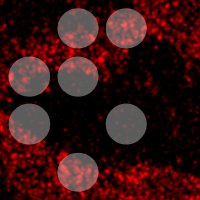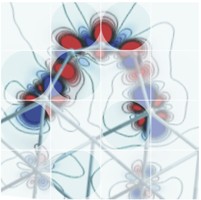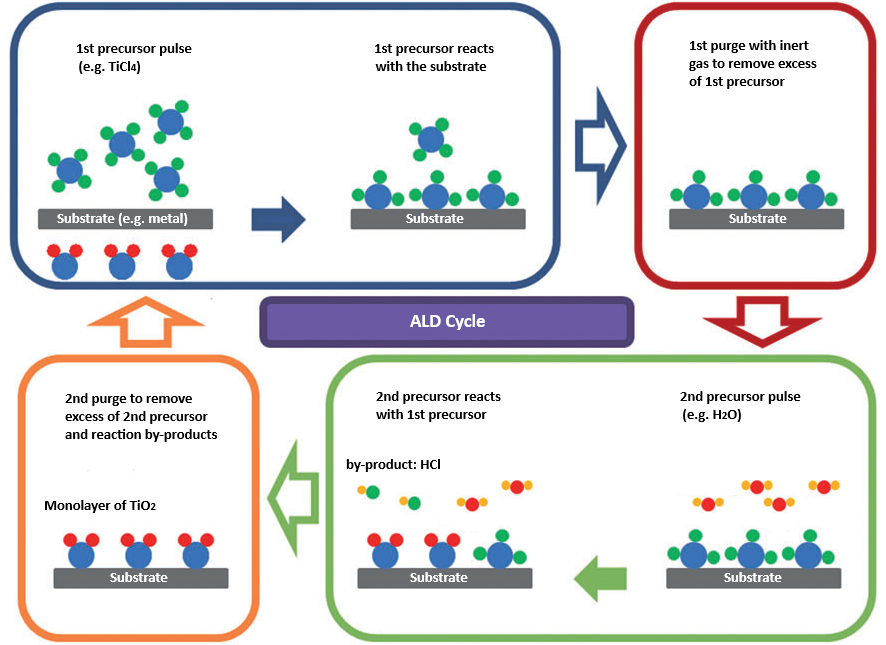
|
Research programme
Corrosion protection In the field of corrosion protection our research is focused on the following topics:
ALD coatings Due to its great potential for producing very thin layers, ALD method is involved in a broad spectrum of applications, from microelectronics, metal films, capacitors, and corrosion barrier. Our work is focused on the latter application where 100-200 nm thin Al2O3 and HfO2 films are used for corrosion protection of aluminium alloys, stainless steel and titanium alloys.
Figure: A scheme of the four steps that comprise an ALD cycle on the example of TiO2 film formation. Publications related to ALD coatings
Projects related to ALD coatings
|




